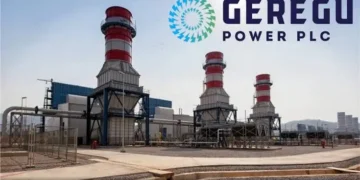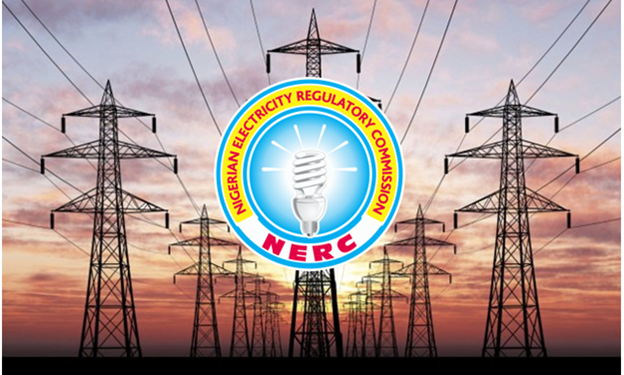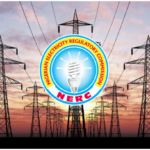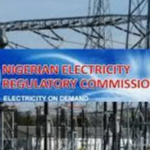Enugu Electricity Regulatory Commission (EERC) has insisted that the Nigerian Electricity Regulatory Commission (NERC) lacks jurisdiction over tariff decisions made by State regulatory bodies.
Also read; UAC of Nigeria Plc to acquire Chivita|Hollandia (CHI Limited)
Special Adviser to the Governor of Enugu State on Power, Joe Aneke made this assertion during a meeting with the state commissioners for energy on the electricity market, held in Abuja on Tuesday.
The meeting in Abuja on Tuesday was convened following EERC’s reduction of the Band A electricity tariff from ₦209/kWh to ₦160/kWh.
Aneke emphasised that NERC’s regulatory powers do not extend to tariff-setting by state-level electricity commissions.
The Special Adviser argued that EERC had developed its tariffs independently, relying on its own data and software rather than NERC’s models. He also highlighted persistent challenges in accessing essential data from NERC and EEDC, which is legally required to provide such information.
EERC had earlier in July issued a new tariff starting from August 1, 2025, saying that Band A customers in Enugu will be paying ₦160 per Kwh, down from ₦209 per Kwh, while other Bands B, C, D and E prices will remain the same.
A few days later, the Nigerian Electricity Regulatory Commission (NERC) came out to say that the Enugu Electricity Regulatory Commission (EERC) lacks the regulatory power to fix the electricity price when the power is generated and transmitted from the national grid.
Following NERC’s statement, the EERC issued a ten-paragraph public Notice, to in its words “provide clarifications and necessary information to stakeholders and the public.”
- NERC accurately stated in paragraph 1 of the Public Notice that:
“The Nigerian Electricity Supply Industry (“NESI”) was fully decentralized in 2023…and
extensive provisions were made in the EA (Electricity Act 2023) for the orderly transition of
powers over intra–state electricity market from the Federal Government of Nigeria 9”FGN”)
under the auspices of the National Assembly, Federal Ministry of Power (“FMoP”) and the
Nigerian Electricity Regulatory Commission (“NERC” or the “Commission”) to subnational
institutions upon fulfilment of the conditions specified in the Act.”
The crux of the matter, and the key question in a decentralized electricity supply industry, is
whether multiple tariff regimes are reasonably possible.
Furthermore, where a State like Enugu State has assumed full regulatory oversight over its
intrastate market, is it precluded from issuing a Tariff Order for that market? - NERC in paragraph 3 of its Public Notice referenced the Concurrent Legislative List –
Paragraphs 13 and 14 of Part II of the Second Schedule to the Constitution of the Federal
Republic of Nigeria, 1999, as amended (CFRN) to highlight the powers of the National
Assembly and the House of Assembly of a State to make laws on NESI matters. The Notice
underlined Paragraphs 13(b) and (e). NERC ignored the fact that the National Assembly is NOT
authorised to make laws on the matter of distribution of electricity.
On this constitutional matter, it should be noted that –
2.1 under Paragraph 14(b) of Part II of the Second Schedule to the CFRN, only States have the
constitutional right to make laws with respect to the distribution of electricity.
2.2 by virtue of Paragraph 13 of the Part II of the Second Schedule to the CFRN, the National
Assembly is restricted to making laws with respect to ‘the generation and transmission of
electricity in or to any part of the Federation and from one State to another State’. Electricity
distribution was deliberately excluded.
2.3 That NERC is still regulating electricity distribution in Nigeria is a legacy of the centralised
electricity market operated in Nigeria prior to the constitutional amendment in 2023 and the
Electricity Act 2023. It is about time electric power sector stakeholders in Nigeria recognised
the fundamental changes introduced into the sector through the constitutional amendment of
2023, the passage of the Electricity Act 2023, and the emergence of the sub–national electricity
market. - In paragraph 6 of the Notice, NERC states
“States that have assumed full regulatory oversight over their intrastate markets are now
authorised to create and regulate transactions in their State electricity markets within the
confines of powers granted to them by the Constitution, the EA and their enabling law, and
this extends to the development of tariff methodologies that shall apply to end–use
customers in their respective States”
This clearly raises questions as to the purpose of the Public Notice, since:
3.1 Enugu State through EERC has assumed full regulatory oversight for the Enugu State sub–
national electricity market.
3.2 EERC can create and regulate transactions in the Enugu State Electricity market, within the
framework of the powers granted by the CFRN and the Enugu State Electricity Law 2023.
3.3 EERC can develop tariff methodologies for end–use customers in the Enugu State Electricity
Market. - NERC stated in paragraph 7 of the Notice:
“As States do not have jurisdiction over the national grid and over electric power stations
established under federal laws/operating under licences issued by the Commission; they
must holistically incorporate the wholesale costs of grid supply to their States without any
qualification or deviation in their design of tariffs for end–use customers in order not to
distort the dynamics of the market or be prepared to make a policy intervention by way of a
subsidy for any deviation in the tariff structure that distorts the wholesale generation,
transmission and legacy financing costs in NESI.”
4.1 This paragraph of the Notice flows from a misconception of the Tariff Order by EERC
and a misapplication of the authority over the national grid.
4.2 NERC has exclusive jurisdiction over the regulation of the national grid and electric
power stations licensed by NERC4.3 The jurisdiction over the national grid and generating plants licensed by NERC is distinct
and separate from benefits under the electricity subsidy programme of the Federal
Government. Whether States with established electricity markets should benefit from the
electricity subsidy programme is a matter of profound constitutional importance. In a
federation such as Nigeria, it does not lie with NERC to make this determination as it
summarily declared in their recent Notice that States ‘…must holistically incorporate the
wholesale costs of grid supply to their States without any qualification or deviation in their
design of tariffs for end–use customers’
(a)The subsidy programme is funded from the Federation Account established under section
162 of the CFRN. This account belongs to the three tiers of government in Nigeria and
benefit therefrom is determined by the Constitution.
(b)To suggest that a State could be denied a benefit from the Federation Account, such as
the electricity subsidy programme, because that State has exercised its constitutional right
to establish a sub–national electricity market will be an act subversive of the Constitution.
(c) The unstated aim of the Notice seems to be all about preserving for NERC the
exclusive right to determine end–use tariffs in the NESI, and for the States to simply adopt
and apply them, notwithstanding the provision of their State laws. Under this arrangement,
States that accept this usurpation will continue to enjoy the national subsidy on the
generation tariff. And the States that do not will be denied their benefits, and told that they
could generate their electricity, even though the SubCos are entitled to a share of the
Successor DisCos’ minimum offtake obligation from the grid.5. In paragraph 8 of the Notice, NERC stated:
“The Commission’s attention has been drawn to the increasing stakeholders’ concerns
over the Tariff Order (Order No. EERC/2025/003) issued by the Enugu State Electricity
Regulatory Commission (‘EERC’) to its Licensee Mainpower Electricity Distribution
Limited (MEDL) that relies exclusively on electricity supply (generation and transmission)
from the national grid. NESI stakeholders have expressed concern about the
consequences of the reduction of tariffs for Band A customers in MEDL’s network area to
NGN160.4per kWh and the freezing of tariffs of customers in the other bands on the
wholesale generation and transmission costs along with the financing costs for legacy
obligations in NESI. It is pertinent to state that the NGN160.4 per kWh was arrived at
largely by reducing the current average Generation Tariff of N112.60 per kWh to
NGN45.75 per kWh with an assumption of subsidy component, a difference of N66.85
per kWh.”
5.1 Given the engagement EERC has had with NERC on this matter, it is strange and
beggars belief that NERC chose to misinterpret the Tariff Order claiming that the tariff of
NGN160.4 per kWh for Band A was arrived at ‘largely by reducing the current average
Generation Tariff of N112.60 per kWh to NGN45.75 per kWh with an assumption of subsidy
component, a difference of N66.85 per kWh’.5.2 EERC states unequivocally that the reduction in the tariff for Band A customers under the
Tariff Order was not based on any populist sentiment, or reckless bluster. Rather, it is a result
of a rigorous and transparent process of tariff determination during which costs and other
relevant data from MEDL were carefully reviewed and analysed based on the provisions of
the Enugu State Electricity Law 2023, and EERC’s Tariff Methodology Regulations 2024.
5.3 EERC recognised that NERC regulates the national wholesale electricity market.
Accordingly, EERC adopted the input parameters established by NERC for Generation and
Transmission in the tariff determination process. In particular:
(a) The cost of delivering electricity from the national grid to MainPower via EEDC, under the
existing arrangement in the NESI, was fully accommodated. For clarity, the Federal
Government subsidy on electricity, which is administered through the grid generation cost, is
availed to the DisCos through their DisCo Remittance Obligation (DRO) on the invoices from
NBET, the bulk electricity trader.
(b) This existing NESI arrangement was not altered in any way in the Tariff Order, and is
consistent with Order 27 of the NERC Order on the Delineation of Assets and Liabilities of
Distribution Licensees (Order No. NERC/2025/028) of March 2025, which provides as
follows: …each DisCo shall transfer its entire offtake obligation to its constituent SubCo based
on the historical energy delivered to each state.
(a) MainPower’s share of every obligation owed by EEDC to the national wholesale market
was duly accounted for and recognised in the Tariff Order.
(b) EERC accepted the figure that MainPower presented as its share of EEDC’s outstanding
Central Bank of Nigeria (CBN) intervention facilities in the NESI.6. EERC has provided these clarifications and details because it has anchored its operations
on transparency and accountability to the stakeholders. The Board, Management and staff of
EERC believe in and are committed to promoting an efficient and sustainable electricity
market which can attract investors/operators. This commitment underpins the continuing
liaison and cooperation with NERC. EERC will not undermine the commitment by its actions or
omissions.
7. EERC wishes to reaffirm that Tariff Order [Order No. EERC/2025/003] is the product of a
transparent and rigorous process of tariff determination. All the relevant information provided
by MPEDL were reviewed and analysed, and the exact national wholesale costs were
properly accounted for and accommodated. And the resulting tariffs fully recover
MainPower’s efficient costs of doing business in Enugu State as a utility regulated under the
laws of Enugu State.
Nnamdi Maduakor is a Writer, Investor and Entrepreneur





















































